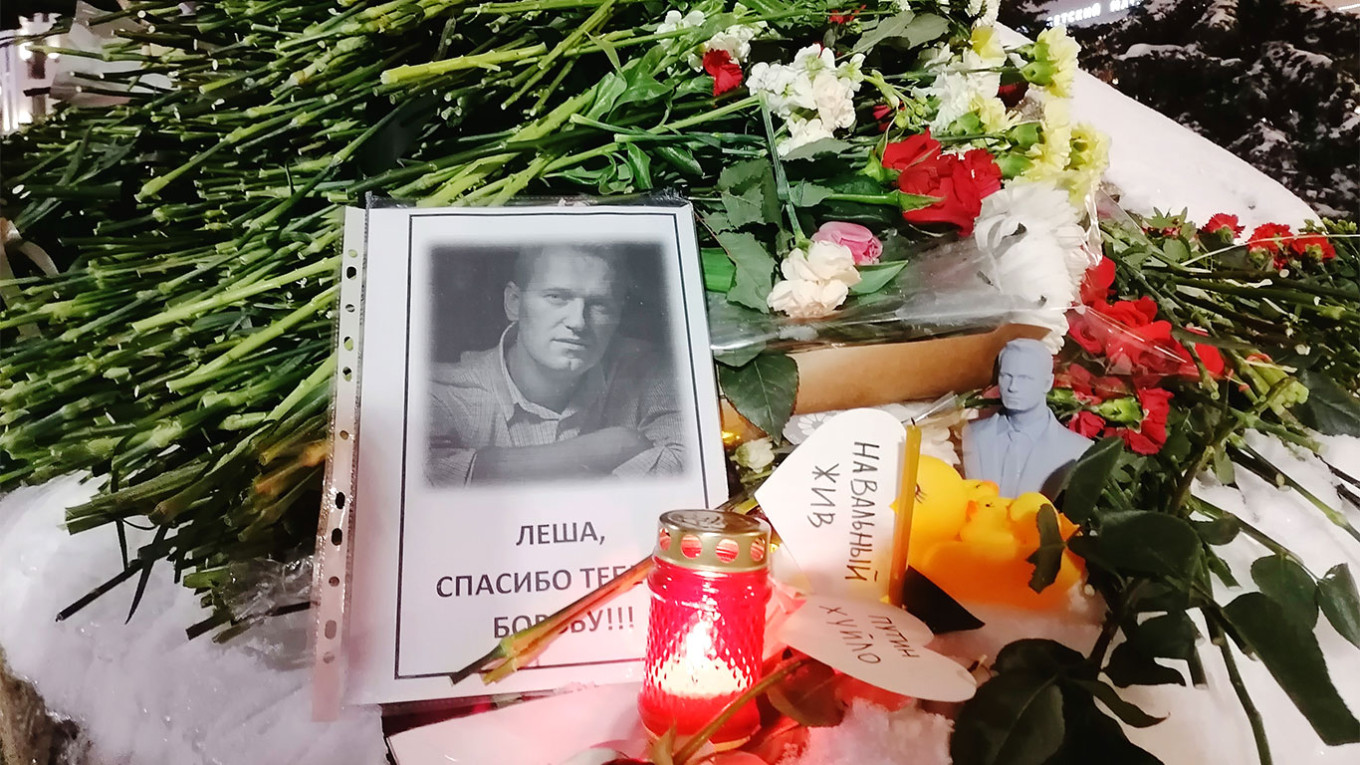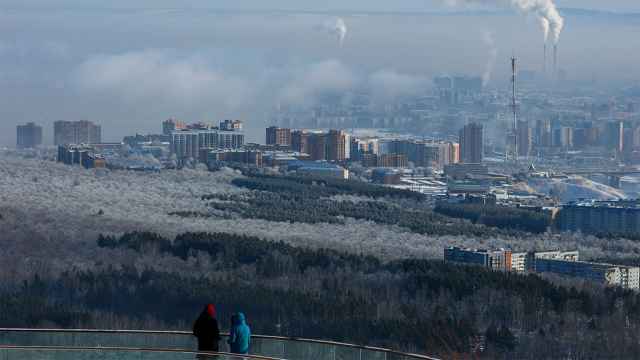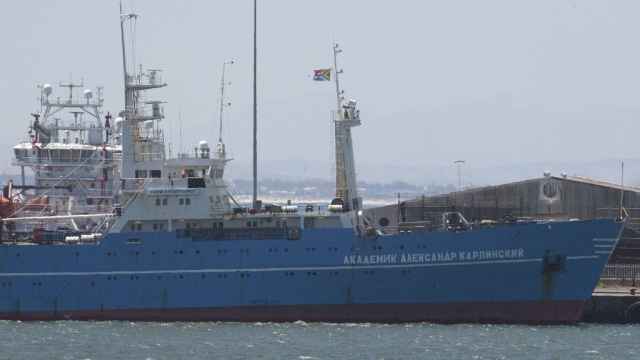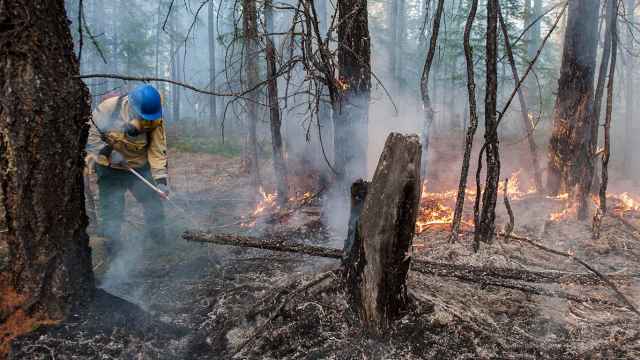The political movement created and led by Alexei Navalny helped bring environmental issues to the forefront in Russia — and could have played a key role in their future progress if the opposition politician had not died, experts and activists told The Moscow Times.
While climate change and the environment were not the anti-corruption activist’s primary focuses, Navalny and his team gave attention to environmental problems at a time when other political actors ignored them.
“At a certain point, Navalny and the entire group around him became the only reasonable people in politics to whom you could turn with any serious issue,” Vladimir Slivyak, co-chairman of the environmental group Ecodefense, told The Moscow Times.
As press freedom in Russia gradually deteriorated after President Vladimir Putin’s return to the presidency in 2012, Navalny’s media platforms — which reached millions of viewers — became in some cases a last resort for environmentalists to draw attention to their cause.
“It became clear that potentially more people could watch a program on Navalny’s [YouTube] channel than some program on Perviy Kanal [state broadcaster],” said Slivyak, who was personally acquainted with Navalny before he gained widespread recognition.
“Of course, like any other normal politicians, they won't rush to help with every little thing. But if you bring something truly serious and say, ‘Here, we need help,’ they would help. And that made them very valuable.”
Loudspeaker of truth
In a country constantly grappling with environmental challenges, Navalny and his Anti-Corruption Foundation (ACF) picked up hot environmental issues that garnered significant public attention.
Following a huge oil spill at a facility operated by metals giant Norilsk Nickel in May 2020, Navalny criticized the lack of responsibility and transparency in the management of the disaster by the company's owner, oligarch Vladimir Potanin.
“We all need to keep a close eye on the story of Norilsk Nickel — it's not just about ecology, it’s a political matter,” Navalny said in July 2020. “There's a super-rich person who doesn't want to pay a single penny when he pollutes the entire Arctic around him.”
The politician also highlighted catastrophic Siberian wildfires in May 2019, criticizing the authorities and state media for inaction.
“Our [Russian] news focuses more on fires in California when … celebrity homes are at risk. But they say nothing about the fires in Siberia,” Navalny said during a YouTube livestream.
“Every year Siberia is on fire, and every year the federal government doesn't give a damn."
Seeking to shed light on depleted uranium imports, Navalny's team once approached a major environmental organization in Russia for more information, an environmental activist who requested anonymity due to their affiliation with a group previously targeted by the authorities told The Moscow Times.
The ACF’s groundbreaking investigations touched on subjects such as land grabs or violence against environmentalists, both of which were featured in a 2021 film about Putin’s alleged palace on the Black Sea coast.
“It’s not that Navalny did it because he was concerned about the destruction of ecosystems,” Vitaly Servetnik, a representative of the Environmental Crisis Group, a project supporting Russian environmental defenders, told The Moscow Times.
“But various corrupt seizures of territories and their exploitation undoubtedly intersect with the environmental agenda even if there was no intention to look at it that way,” Servetnik said.
The far-flung network of over 80 regional offices — shtaby in Russian — created by Navalny’s team during his presidential campaign in 2017 empowered people to voice their environmental concerns.
In Russia’s atomized society, this enabled people to unite in addressing problems, with the shtaby bringing together about 200,000 people.
Some of Navalny's regional coordinators were also active environmentalists, like Andrei Borovikov, an activist in the Shiyes garbage protests in the Arkhangelsk region, or Alexei Shvarts, who opposed uranium mining in the Kurgan region.
Navalny himself spoke at a rally against the construction of a mineral processing plant in Chelyabinsk in 2017, blasting the authorities’ plans to "profit by selling the health of its citizens."
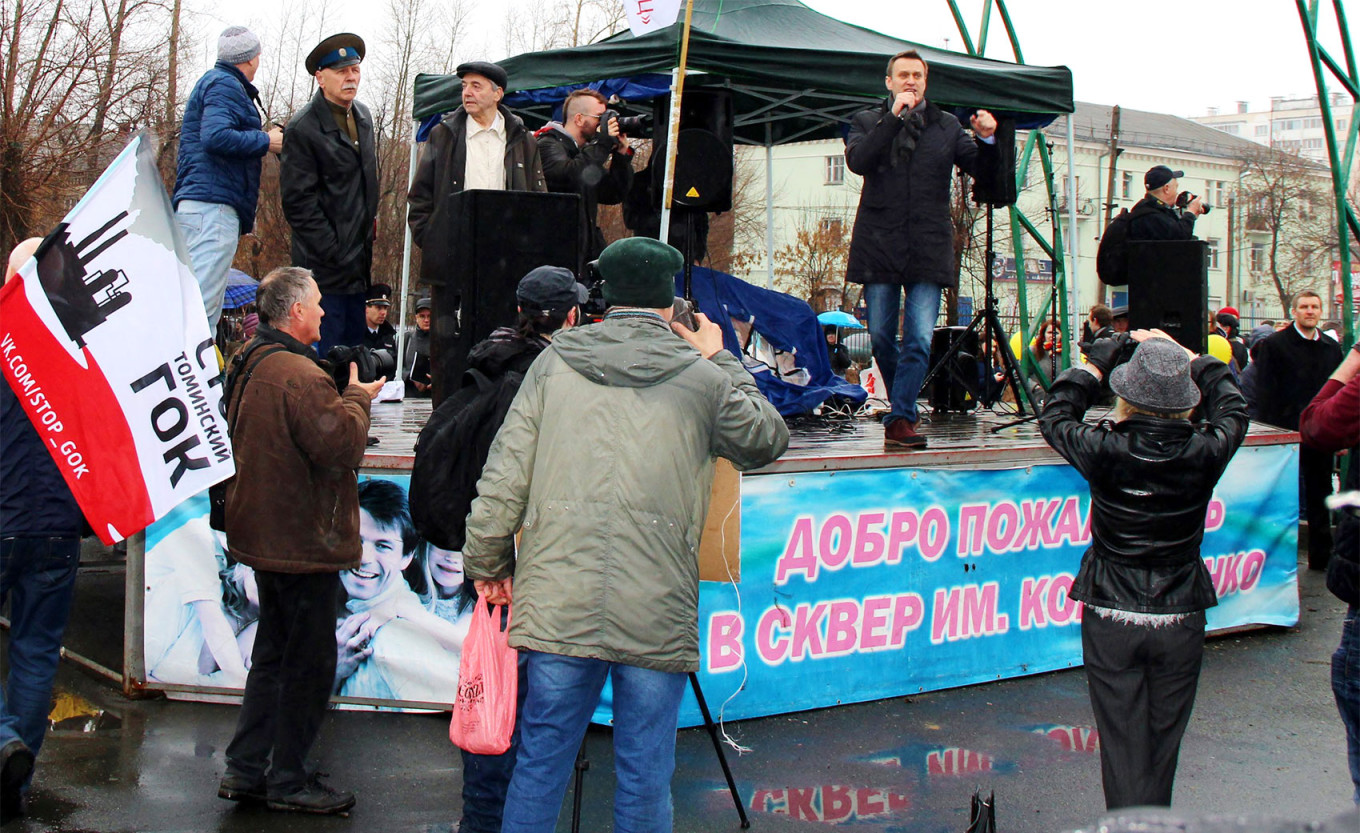
“Shtaby invited [environmental] activists to talk about their issues, and in regions, activists sought assistance from the shtaby,” Servetnik recalled.
“As the most vibrant political force, [Navalny’s team] was most responsive to grassroots needs. And it's normal because if it's an attempt to build a real party and not some imitation, then you have to respond to those local problems.”
But as the Kremlin tightened its grip on Navalny and his allies, Russia’s environmental defenders faced a dilemma over whether to engage with the prominent Putin critic, worrying he could do more harm than good to their cause.
“Some environmentalists believe that bringing their agenda up into the political arena carries risks and is better to be avoided,” Servetnik said.
“I think that if we want more than just to preserve a single flower or sort garbage into bins, it is indeed a political issue. However, at some point, the connection with Navalny carried more risks than opportunities," the expert noted.
Beyond populism
In Russia, where climate change has historically been a low priority for the public, Navalny and his team occasionally raised the unpopular issue — even though it was not primarily their job, but that of activists, Slivyak said.
When Greta Thunberg faced a backlash in Russia after her emotional speech at the 2019 UN climate action summit, Navalny spoke out in defense of the renowned Swedish climate activist and her cause.
“I was very surprised that everyone in Russia hates Greta Thunberg,” Navalny said in September 2019. “But if you're against this Greta, then are you defending Russia’s oil-coal present? Because … we simply dig something from the ground, then burn it with hellish soot, and with this, we heat and generate electricity.”
He continued by explaining the scientific consensus on manmade climate change, slamming Russia’s climate skeptics and emphasizing the need for more space for environmental issues in the country’s political agenda.
“We're [in Russia] trying to meet our basic needs according to Maslow's hierarchy, at least to earn a salary of 20,000 rubles [$300 in 2019]. And only then do we start thinking about the environment — that's how it seems to us. Although it's completely wrong,” Navalny added.
In the absence of clear public demand for climate action, partly due to media propaganda sponsored by the oil and gas industry, it was significant for a politician in Russia to even talk about climate change, Slivyak said.
“I don't know who else spoke like that. I haven't heard any other politicians from any spectrum in Russia being so bold and independent in their judgments that they could afford to come out and say like that.”
As Russian society and its understanding of the climate crisis gradually evolved, Navalny’s team had the potential to bring this issue to the forefront — unlike “many other rigid political forces," Servetnik said.
Although Navalny’s 2018 presidential platform did not contain a specific environmental agenda, Slivyak said he believes it would have "absolutely for sure" appeared on his 2024 platform — if the renowned opposition leader had been alive and free.
“Navalny was a serious politician in this regard,” Slivyak said.
“He spoke not only about what people wanted to hear but also about things that might not be very popular but were important in his own opinion.”
A Message from The Moscow Times:
Dear readers,
We are facing unprecedented challenges. Russia's Prosecutor General's Office has designated The Moscow Times as an "undesirable" organization, criminalizing our work and putting our staff at risk of prosecution. This follows our earlier unjust labeling as a "foreign agent."
These actions are direct attempts to silence independent journalism in Russia. The authorities claim our work "discredits the decisions of the Russian leadership." We see things differently: we strive to provide accurate, unbiased reporting on Russia.
We, the journalists of The Moscow Times, refuse to be silenced. But to continue our work, we need your help.
Your support, no matter how small, makes a world of difference. If you can, please support us monthly starting from just $2. It's quick to set up, and every contribution makes a significant impact.
By supporting The Moscow Times, you're defending open, independent journalism in the face of repression. Thank you for standing with us.
Remind me later.


